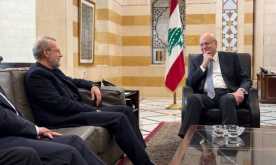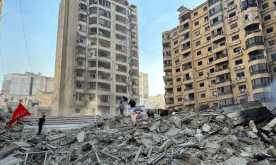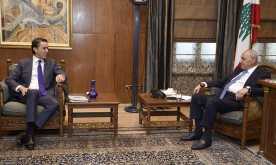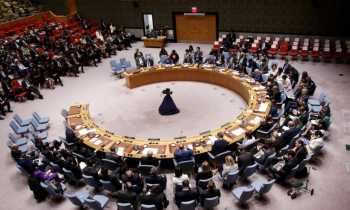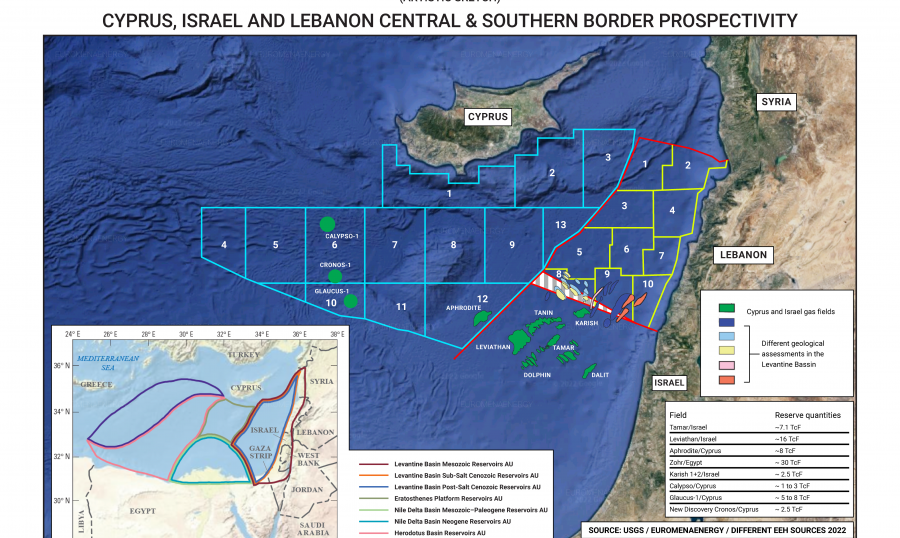

Baroudi: East Mediterranean: Great expectations in the maritime demarcation will give Lebanon a chance to fund recovery with offshore gas
المركزية- أكد الخبير الدولي في شؤون الطاقة رودي بارودي أن "منطقة حوض شرقي المتوسط “Levantine basin” التي هي بقعة مثيرة ومعقدة للغاية لأسباب جيو- سياسية، تحتوي على آفاق إمكانية وجود كميات كبيرة من البترول والغاز لم يتم اكتشافها واستغلالها بعد، خصوصاً أن المنطقة تحتوي على الكثير من الاحتياطي النفطي الممكن الاستفادة منه".
هذه المعلومات أوردها بارودي في مقال كتبه باللغة الإنكليزية، هنا نصّه:
Indirect negotiations to demarcate Lebanon’s maritime border with Israel appear to be approaching a successful conclusion, and one of the region’s most experienced energy experts says the Lebanese side can expect to find significant amounts of offshore natural gas within its Exclusive Economic Zone (EEZ).
“At this point, the evidence is overwhelming,” said Roudi Baroudi, a Lebanese energy economist who heads the Energy and Environment Holding (EEH) consultancy in Doha, Qatar. “Various parts of the Levantine Basin, which includes Lebanon, Israel, Cyprus, and Egypt, have been studied, surveyed, and prospected in numerous ways by numerous parties for more than a decade, and all signs point to enormous opportunities for all of these countries, including Lebanon.”
Overall, he added, studies by the United States Geological Survey in 2010, 2016, and 2020 have repeatedly confirmed and reconfirmed that the region holds enormous amounts of commercially recoverable undersea gas, with the latest estimate coming in at more than 120 trillion cubic feet.
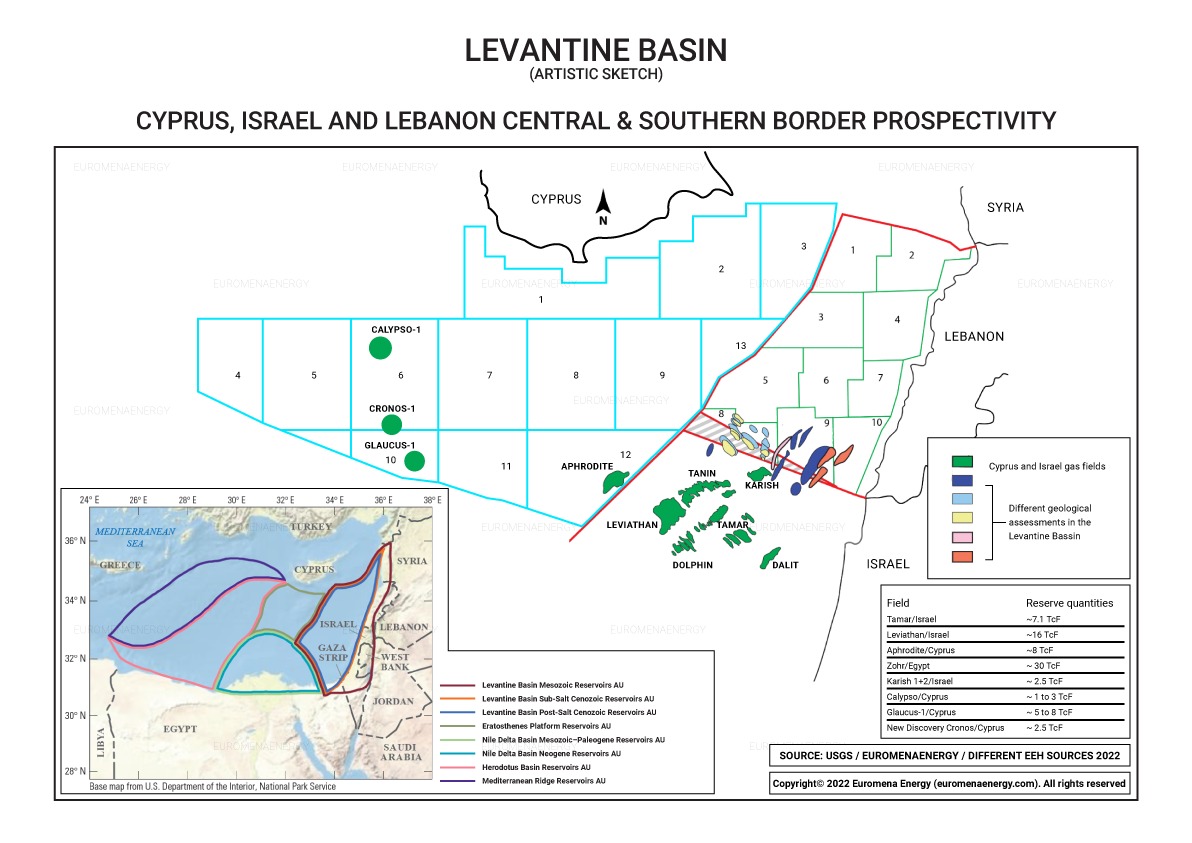
Baroudi underlined several important discoveries during this period, including Israel’s Tamar and Leviathan fields in 2008/2009, Egypt’s giant Zohr field in 2015, and Cyprus’ Aphrodite field, also in 2015. Israel and Egypt are already producing gas from their respective EEZs, and while Cyprus has yet do the same, it recently added another major offshore discovery in the form of the Cronos field.
“Together, these fields add up to 52 trillion cubic feet – and that doesn’t include Lebanon yet,” he said, explaining that demarcating the border would finally allow full-scale exploration to begin in Lebanese waters as well. “In Lebanon/Israel/Cyprus alone, companies like Spectrum, PGS, TGS, and NEOS have conducted 2D and 3D seismic surveys covering more than 60,000 kilometers lines in 2002, 2008, and 2016, identifying more than 150 high-potential spots, many of them in Lebanon’s EEZ. Once we start drilling, there’s virtually no doubt that we will find sufficient gas deposits to give a massive boost to Lebanon’s economy – which obviously needs all the help it can get.”
Baroudi also provided exclusive maps, which show where previous discoveries have been made and indicate likely areas for future ones. Based on models derived from geological studies and analysis of rocky subsoil, he explained, the offshore waters of Lebanon and other regional countries still contain large quantities of undersea gas that remain undiscovered and untapped.
He also cautioned, however, that merely proving the existence of commercially viable gas reserves would not guarantee Lebanon’s salvation, especially amid the country’s ongoing financial and economic crises.
“It has taken almost 20 years, but the Lebanese political arena has largely united on this issue, and that has finally got us to the brink of official demarcation. We have to thank the Americans, too, because US mediation has been essential to hammering out a deal with the Israelis,” he said. “If we really want to make the most of what we find, though, Lebanese politicians still have to agree and implement a long list of reforms in order to improve our financial, judicial, and economic systems.”
“When it comes to creating jobs and other opportunities for ordinary Lebanese, demarcating our EEZ in a way that preserves Lebanese interests is a necessary but not sufficient condition,” Baroudi explained. “We also need to reduce corruption and inequality while increasing both public and private investments in education, healthcare, transport, and other infrastructure. Having a recognized EEZ will make Lebanon a more attractive place for international oil and gas companies to do business, but the rest is on us.”
On a related note, Baroudi explained that if and when the indirect talks with Israel are completed, Lebanon will need to amend the coordinates in Decree No. 6433 of 2010 – which defines its EEZ claim – and file them with the United Nations Division for Ocean Affairs and the Law of the Sea (DOALOS). “Israel will have to do the same,” he said, “and this way we can enshrine our acquired rights in a way that makes them more easily enforceable and therefore more attractive to investors.”
The prospects for Lebanon’s nascent offshore energy were also improved, he said, by the recent withdrawal of Russia’s Novatek from a consortium with France’s Total Energies and France’s Eni. “The presence of Novatek would have inhibited the consortium’s activities because of US sanctions banning interactions with Russian companies,” Baroudi explained. “Its departure gives Total and Eni a lot more freedom of action.”
“For all these reasons, I’m confident that Lebanon can emerge from the dark tunnel it’s been passing through for the past several years,” he concluded. “Provided the key political players have the good will and the good sense to unite for the sake of the country and its people, we can finally have some reason for optimism.”



